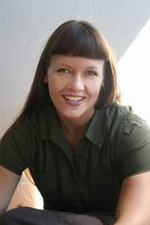About Me

Julia Flood, LCSW
Licensed Psychotherapist
I am a licensed psychotherapist, and have been working in the mental health field since 1996. I specialize in couples therapy (marriage counseling), helping couples in crisis to break out of the vicious cycle of hurting and being hurt.
I have been married myself for 25 years, with 2 children, so I understand both the joys and struggles that marriage and family can bring. In our culture, there's a lot of pressure to look like we have it all together, especially when it comes to our families. Most of us don't though, and the sooner we realize that we could use some support, the better!
How I Work
I'm committed to addressing couples and individuals as whole people, on an emotional, mental, social, and spiritual level. That means that a big part of my focus on relationships is about respecting who you are - your values, choices, and beliefs - and helping you to grow and flourish in that. We'll work together to strike the right balance between respecting your boundaries of how much you’re willing to change at this time, while gently challenging you to grow in areas of your life and relationships.
The approach to counseling that I take is a blend of a variety of individual and couples therapy approaches, including Emotionally Focused Therapy, Bader-Pearson's Developmental Model, Cognitive-Behavioral Therapy, and Acceptance and Commitment Therapy. Put more simply, my focus is on understanding how our thoughts, feelings, and patterns of interactions with others effect how we perceive life. From these understandings we will work together to find practical solutions and create new experiences.
Emotionally Focused Therapy (EFT): Rather than just teaching new communication techniques, EFT looks at patterns of communication and underlying feelings. The focus is on restoring trust.
Bader-Pearson's Developmental Model of Couples Therapy: This approach integrates insights from attachment theory, differentiation theory and neuroscience to develop and apply effective treatment plans for couples' interactions.
Cognitive-Behavioral Therapy (CBT) focuses on how our thoughts and feelings affect our behavior, and helps people change destructive behavior patterns by learning to see things differently. Individuals that are depressed for example often make negative evaluations of themselves, the world, and the future, and experience the events in their life as confirmation of these cognitive “biases”. Cognitive-behavioral therapy helps you to question these biases, both by looking together for evidence for these beliefs in reality, as well as finding new ways of perceiving yourself and your world, empowering you to take control of your life and your feelings.
Acceptance and Commitment Therapy (ACT) is a promising new approach to treating anxiety and depression. Instead of fighting off unwanted thoughts and feelings with internal pep talks, ACT teaches you to embrace pessimistic mental voices, thus defusing them with respectful attention ("mindfulness"), and to commit to leading a purposeful life which may include their occasional "nagging".
You can read my articles on how I apply these frameworks to common relationship problems here.
 German Language Site
German Language Site
